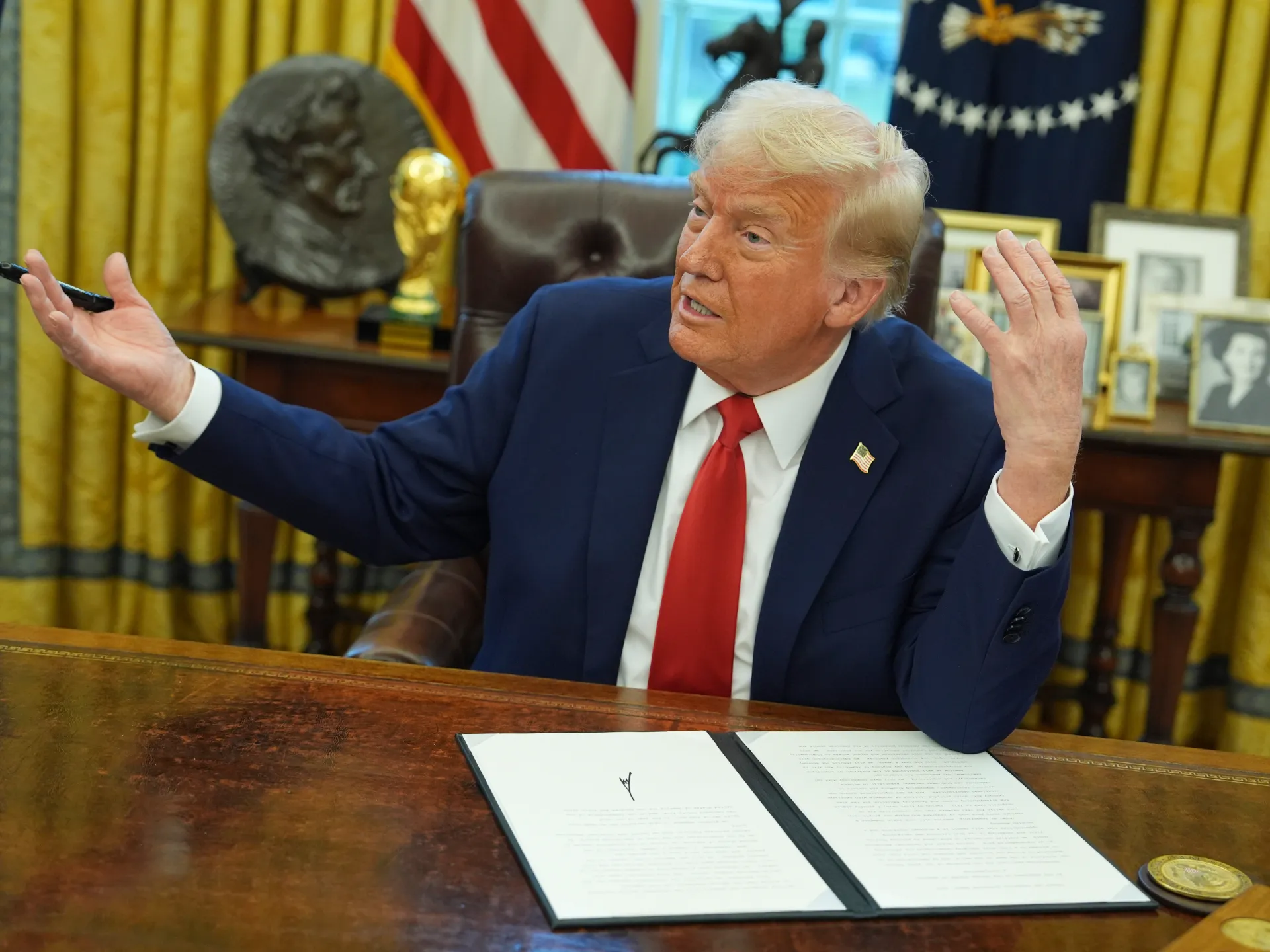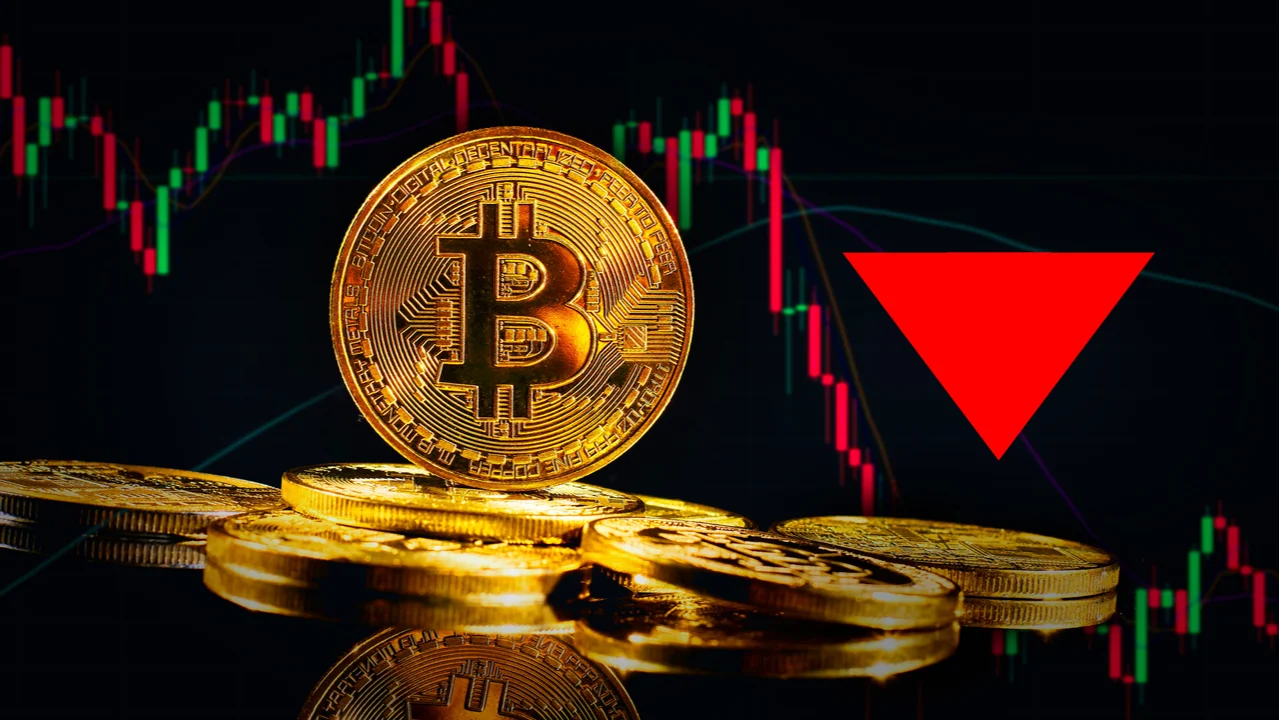Bitcoin Dips to $96K Amid Economic Uncertainty

Bitcoin has suffered a notable decline in a turbulent week for the cryptocurrency market. Many elements have been blamed for this drop, most notably the recent warning from former President Donald Trump on tariffs that would affect the economic mood. The ramifications for Bitcoin Dips to $96K in the larger cryptocurrency market are significant as investors negotiate the complex web of global economic data and political rhetoric.
Bitcoin’s Sharp Decline Raises Concerns
Bitcoin’s price has drastically declined from its prior highs, which hovered above $105,000. Investors are worried about the stability and future path of Bitcoin and other cryptocurrencies this fall. Bitcoin’s volatility is not unique; it reflects more general patterns in the financial markets shaped by macroeconomic reports, geopolitical concerns, and legislative changes.
Trump’s comments on tariffs aggravate the already high uncertainty in the global economy, which is one of the main causes of this price decline. His caution, particularly regarding China, points to a probable refocusing of trade policies that would result in more scrutiny and conflict. Such announcements sometimes cause anxiety in riskier assets like cryptocurrencies, forcing investors to rethink their positions and adopt a more wary stance.
Trump’s Tariff Remarks Impact Bitcoin

Former President Trump’s comments on tariffs have historically changed the market mood. His latest warnings indicate a possible return to more aggressive trade measures, which would upend worldwide financial markets. Rising tariffs cause investors to be cautious because they can raise consumer and company expenses, generating inflationary pressures. This uncertain atmosphere causes a risk-off attitude, whereby investors usually migrate to safer assets, such as gold or conventional fiat currencies.
When Trump said similar things in the past, we saw clear market reactions. Often, the immediate aftermath consists of soaring US dollar strength and a corresponding reduction of risk assets. Being naturally erratic and sometimes regarded as a speculative investment, Bitcoin usually responds quite negatively to such news.
Bitcoin Faces Pressure from Economic Shifts
Though usually praised as digital gold, Bitcoin has not escaped the effects of a changing risk attitude. Cryptocurrencies flourish in an environment of expansion, creativity, and investor confidence. However, investors might reduce their exposure to Bitcoin due to economic uncertainty and worries about tariff-induced inflation.
Furthermore, the Bitcoin market is quite sensitive to news cycles and political events. Since institutional investors now significantly participate in the Bitcoin Dips to $96K, the relationship between the currency’s price and general economic conditions has become clearer. Their strategies might mirror understood financial trends; consequently, the general state of the market determines the price swings of Bitcoin rather strongly.
Bitcoin Falls to $96K Buy or Caution

Many investors are reviewing their plans as Bitcoin’s price falls to $96,000. Some see this decline as a possible purchase chance, particularly considering that long-term projections for Bitcoin indicate it may soar. On the other hand, some are cautious since they believe that ongoing worldwide economic pressures could cause volatility in the crypto market.
Analysts have differing opinions about Bitcoin’s future course. Some think the present slump is only a transient correction within an optimistic trajectory driven by institutional acceptance, legislative clarity, and growing blockchain technology usage cases. Others caution that the growing political and economic turbulence might indicate a lengthier time of uncertainty for Bitcoin and other cryptocurrencies.
Bitcoin & Economy Key Market Influences
Beyond the direct consequences of Trump’s tariff concerns, other economic data shapes the bitcoin market. Rising inflation, shifting interest rates, and changing fiscal policies shape investors’ risk appetite. The continuous changes in the Federal Reserve’s monetary policy have sparked rumours about possible rate increases, which might further influence risk assets such as Bitcoin.
Furthermore, the global crypto scene is constantly changing as governments apply tougher digital asset regulations. Nations, including the United States, Europe, and China, increasingly emphasise building systems controlling bitcoin markets. Although these rules safeguard investors, they might impede the quick innovation that defines the crypto market.
Moreover, the price of Bitcoin and the general market state will depend heavily on technological developments and the growth of blockchain technology. As layer-two solutions acquire traction and the scalability of networks advances, traders and investors may experience fresh enthusiasm.
Conclusion
The recent decline in Bitcoin Dips to $96K, caused by worries related to Trump’s tariff caution, highlights the erratic investor attitude in cryptocurrencies. The future of Bitcoin is still unknown as the market struggles with political events and economic issues, capturing a mix of danger and potential.
Investors must remain smart and informed, as always, ready to change hanging swings in attitude, defining that difficult thing is certain: the interaction between politics and financial markets will continue to determine the course of Bitcoin and its compatriots in the next months, whether this dip marks a temporary setback or the beginning of a more major trend.
[sp_easyaccordion id=”4008″]




